According to data from Brazil’s national space research agency Inpe, deforestation in the Amazon rainforest in Brazil jumped to a 12-year high in 2020.
Amazon is the world’s largest rainforest and it is not just a forest that is located in Brazil but it is a forest for the entire planet. Why? it’s commonly believed that the Amazon rainforests produce 20% of the world’s oxygen and that makes them the “lungs of the planet”.
Deforestation is not just happening in Amazon, but it is happening at an alarming rate across the world. Agriculture, cattle ranching, construction activities, wildfires, and many more reasons are contributing to forest depletion and increasing global temperatures.
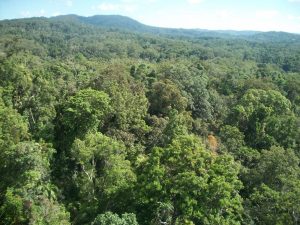
Most of us do not have any control over government policies, illegal activities, or land deals – but we have control over our actions. If we want to fight Climate Change collectively, forests and trees are what we need, and that too in huge numbers.
We don’t have to go very far, we can do it from the comforts of our homes & office, thanks to technology.
EcoMatcher is an interesting organization that leverages technology to act as a liaison between corporates and tree-planting organizations. We sat for an interesting conversation with Bas Fransen, founder, and CEO of EcoMatcher.
Any company which wants to support the cause of tree plantation has to simply use EcoMatcher for its purpose.
The company collaborates with tree planting organizations to facilitate bio-diversity. As of 2020, 8 tree planting organizations from around the world have become their partners. Trees4Trees from Indonesia, Conserve Natural Forests from Thailand, SayTrees from India are a few on that list.
Here is an edited version/excerpts of our conversation with Bas about the company, plans, and the response thus far. For the full discussion please watch the video.
Tell us about your Journey?
I am originally from the Netherlands and am currently based out of Hong Kong now. My background is in technology. I used to run the Technology Group for IBM out of Japan for the Asian market. I have worked for some other companies as well.
This is my third startup and EcoMatcher is very much a Technology company.
How did you come up with the idea?
Four years ago, I walked into a fair in Hong Kong which was all about corporate gifting. More than 5000 companies came together and were trying to sell their plastic pens, and USB sticks and I scratched my head and thought, that most of these products will not have a shelf life of more than a day since many already have plastic pens and a USB stick.
Can we not come up with something which is more meaningful and that helps in giving back to the environment. And that was the initiator of EcoMatcher.
What is EcoMatcher
EcoMatcher is a company with a belief that we need to drastically ramp up the efforts in addressing the climate crisis. This decade is called the decade of action. In these 10 years, something needs to be done.
Planting trees, scientists have said, has a mind-blowing potential. You need to plant the right tree, at the right time, at the right place. There are numerous organizations around the world that have the knowledge but what is missing is the funding (money).
On the other side of the spectrum, we have an incredible amount of companies willing to participate in the climate change crisis but in many cases, they do not know how to do that.
That is where EcoMatcher comes from, we have identified that companies are not massively embracing tree plantations for the reason of not being transparent. A lot of organizations claim that they plant trees, but you do not know. Then companies have no tools which they can make use of.
EcoMatcher is bridging, on one side companies willing to make moves massively & collectively and foundations on the other side, planting those trees. We are this technology layer in between.
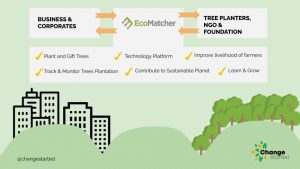
How is the response from the Companies
What we have seen in the last year and a half, since we went live, is that many companies including Microsoft, Facebook, etc. have embraced this transparent tree planting platform and are using it for different purposes.
For example, instead of giving somebody a plastic pen, a company can now plant a tree on behalf of the customer and give those trees in a digital way to the clients. Clients also have the possibility to virtually look at the tree, look at the farmer, send a message to the farmer saying thank you, learn more about the species, etc.
You also see a little bit of branding and that is interesting for the company because now the company gets seen in a better light. Customers also share that experience on social media. Let’s say you share that on Facebook, the friends and family of the one who was gifted see the company in a different way.
We are working with leading market research companies and they are using trees as rewards for respondents finishing a market survey. And interestingly, they have told us that quite a number of respondents who did not want to participate in the past, for all kinds of reasons, now want to take some time to participate in return, they are planting trees.
We also have some companies planting complete forests through EcoMatcher. Everything in those forests, every tree, is a gift to the staff in the organization. An employee can travel to their trees, look at them and they can also see where they are in the company forest, which gives them a sense of belonging and you make them part of the company’s sustainability journey.
Quite a few companies also give you the possibility to offset your carbon footprint. But they never give you the level of detail which is required to get people really encouraged. If you fly with a regular airline from A to B, they may offer an offsetting proposition at the coming cost but you will never know what happens with that money.
We, at EcoMatcher, not only participate in calculating the footprint of your travel but also precisely calculate how many trees you would need to offset that carbon footprint, and the moment you make the purchase all those trees will end up in your mileage statement. That is how you make it transparent.
We love to partner with foundations. We have partnered with 8 foundations till now and will be ramping it up to 25 by the end of 2021 since the ambition of the company is to plant a billion trees by 2023.
In India, we are also planting trees in the state of Karnataka since the middle of this year.
When did you start the company? How is the traction?
The company was founded in 2017. For the first two years, we have been working on the platform. It’s a pretty complex platform with apps we use in the field to capture data of the trees.
We have a cloud-based platform for managing all the trees and providing tools to the companies to best make use of the trees they have planted. We have consumer-facing apps to track the trees.
We actively started selling and dealing with customers only at the beginning of last year by March or April. You can find the names of the companies we work with on our website including Microsoft, Facebook, banks, consumer electronics companies, and market research companies, among others.
I cannot disclose the number of trees we have planted but we are very well on track towards our billion trees goal by the end of 2023. We will continue to grow not only in the number of clients but also in the number of foundations we partner with. The key element is to delight our customers with trees, with technology tools that every company whether you are small, medium, big, or multinational can use without changing the existing organization.
Of course, companies have alternatives and we would love to know what we can do differently and better. We are not a perfect company but we are in the scaling-up phase right now. The whole idea is to delight the customers with the technology and trees and transparency and accountability.
How do you identify the foundation and the companies? What are the checks and balances?
The quality of the foundation is crucial for the success of EcoMatcher. If we bring in crappy organizations, it will be crap in, crap out. It will be disastrous over time, esp since we live in the age of social media.
We have a four-step vetting process for it.
- Let’s say we want to plant trees in India, we have a team of people who use Google to find out what are the type of organizations out there.
- Among the shortlisted organizations, we send a questionnaire that we have developed to the ones who are interested. The questionnaire is available online and can be downloaded.
- Once the questionnaire comes back we look at the answers and some key elements like track records. They need to be in sustainable forestry and need to have a link with universities because we want them to reinvent themselves on a regular basis in forestry and forest management.
- Once those questionnaires come back, we say okay that is the one we want to pursue a partnership with. Then we visit them.
Unfortunately, with India, we were not able to visit due to the ongoing restrictions on traveling. Last year, we visited Uganda and met farmers and foundations there to make sure that we get a good sense of who are the people on the ground because the questionnaire is one piece of the puzzle but what is more important is to understand the people with whom you are dealing with.
If all of that is in place, we will file an agreement. We treat the foundations like suppliers. We make an agreement that lays out the way we are working together. We make it a bit more official. Initially, for some foundations, it seems a little strange but as soon as they realize that we can bring in funding, they like it.
Are you currently in the B2B space only or people like me are also the ones you are targeting?
We are a B2B2C company. We are primarily dealing with the Microsofts and Facebooks of the world. The reason for that is that it gives us the best opportunity of scaling up faster.
If I have to have all the people plant trees, not only will it be difficult but also challenging in terms of scaling up. Also, there are a couple of brands working in the space that have a significant market presence. Interestingly, every brand with whom we work, they have its own way of tweaking the story and that I think is a powerful thing.
We don’t claim to be an expert in social marketing or FMCG, those folks are! Our value comes in the form of qualified foundations and bringing transparency to tree planting and digital tools, apps, marketing sites, and scalability for our customers.
However, if anybody wants to come over to our site and plant some trees, we can do that as well. But, that is not our marketing focus as of now.
What is the kind of reaction from the stakeholders you are working with?
The feedback from the foundations is very heartwarming. They love it and so do the farmers. Last year, when we went to Uganda, we not only captured the pictures of the trees but also the farmers. We make those folks visible at the global level and they feel more important, more relevant!
And that is what we do – these folks are important and we want to demonstrate that to our clients. Somebody’s planting trees in Uganda, in the middle of nowhere, and is now becoming famous in Hong Kong or Japan. That is one side of the story.
When we look at the companies with whom we work and their clients, the reaction again is heartwarming. That is also because we are embracing technology to make it engaging and fun.
For example, today we have Amazon chatbot technology. That sounds weird but you can chat with your tree, you can ask it where it lives. From the backend, we can see that people like it. You can also send out a message to the farmer thanking them.
We are trying to bring more and more engaging features to the platform. People appreciate that they can see their tree(s), or that (s)he is my farmer and they can send them a message. They can also do some fun things like gifting trees through the app for a birthday or Valentine’s day. That is what we are trying to do – bringing everything together through technology so that people appreciate tree planting and talk about it and show their friends and family the trees they have planted and ask them to show theirs by making this a playful engagement.
What was the thought behind the company name?
We are a matching platform, that matches Eco initiatives with companies.
Future plans?
In terms of the next steps, besides onboarding more foundations and a customer base, we want to increase the level of technologies to bring fun and excitement.
We are working with amazing global companies to help them in pursuing their CSR sustainability goals and build loyalty with the customers.
We cannot boil the ocean by ourselves. It is a collective effort and the platform we have will, hopefully, bring some value to this global fight.
Are you looking for funding?
Yes, we are considering raising, not because we are out of cash but because more money will help us plant more trees. We have seen that with almost every company we talk to nobody says that what we are doing is stupid. Most of the companies feel what we are doing is very interesting.
More the companies we can talk to, the more trees we can probably plant. From a market expansion perspective, yes we are looking to raise money. We only have 10 years to fix this issue, so the faster we can get the trees to the ground, the better.
What is your personal connection with the environment?
I have been living in Hong Kong for the past 12 years and it has accelerated my love for nature. I used to be a hiker in Nepal, Switzerland, etc., and climb the mountains and embrace fresh air – those beautiful moments just being with nature which you don’t get while walking down the streets of Hong Kong.
I love trees but I also believe that sustainability and improving the environment is a massive business opportunities. I am extremely happy when I meet the farmers in Uganda, Nepal, and Indonesia, and know what they are doing to make the world a better place to live in. But at the same time, as a businessman, I want to grow the company and get more people on board and plant billions of trees because that is what we need to do.
You can watch the full conversation here!

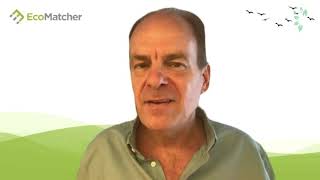
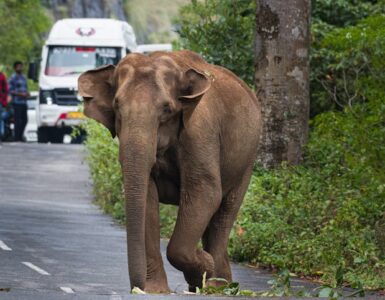
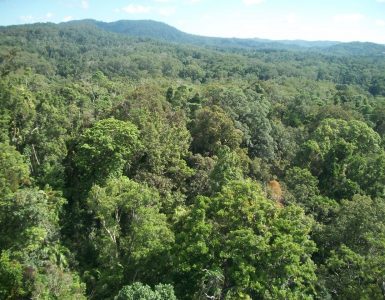


Add comment